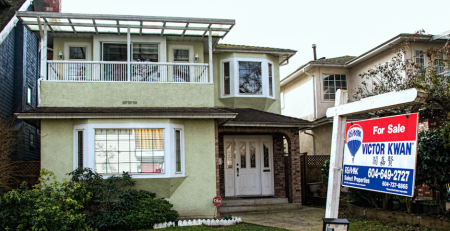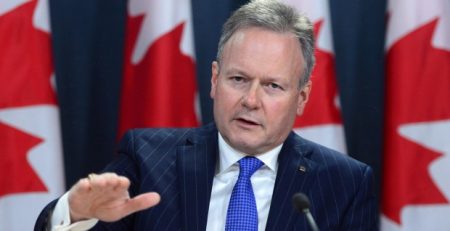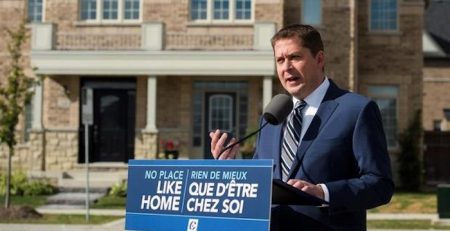First-time home buyers big winners in budget, but will incentives work in B.C.?
[Vancouver Sun – March 19, 2019]
The federal budget offers incentives aimed at making housing more affordable for first-time buyers, but it remains to be seen whether they’ll work in the overheated B.C. housing market.
“We’ll want to look at the details, we’ll want to take a look at whether it will assist people in communities where unaffordability really is a crisis and housing prices are very high,” said B.C. Finance Minister Carole James. “I think that will continue to be a challenge.”
The budget, which was released Tuesday, includes a first-time homebuyer incentive that will allow those who have the minimum down payment for an insured mortgage to finance a portion through a shared-equity mortgage with the Canada Mortgage and Housing Corp.
Eligible buyers will be offered a 10-per-cent, shared equity mortgage for a new home or five per cent for an existing home. The government will recoup its costs when a home is sold. The incentive will be available to households with incomes under $120,000 and on mortgages no more than four times the household’s total income.
It’s expected that about 100,000 first-time home buyers across Canada could benefit over three years.
Thom Armstrong, executive director of the Co-operative Housing Federation of B.C., said such a measure isn’t unexpected in a pre-election budget, but the impact it will have in B.C. is questionable.
“It’s hard to really project how many people will be able to enter the home-ownership market as a result of this program that would not otherwise have that opportunity,” he said.
Andy Yan, director of Simon Fraser University’s City Program, said the incentive program tries to deal with housing affordability by making a form of debt more available.
“These prices are so uncoupled with local incomes that you’re trying to offer these types of financing and borrowing devices to kind of bridge this decoupling,” Yan said. “I think that there’s likely going to be a series of unintended consequences.”
Yan pointed out that $480,000 doesn’t buy much in Vancouver or the region these days.
In February, the benchmark price for a detached home in Metro Vancouver was $1.44 million, and a townhouse was $789,300. The benchmark price of an apartment was $660,300. The Fraser Valley benchmark price for a single-family home was $958,900, while a town home was $516,000 and a condo was $409,700.
“If you’re looking at Victoria, Vancouver or the Lower Mainland, the Island, those prices are a challenge,” James said.
Mathieu Laberge, an expert with Deloitte, said the measures appear to target people who would be willing to rent or buy smaller condos, for example, outside a major urban centre.
“It may shift the decision-making of some buyers in larger cities,” said Laberge, a former policy adviser to Social Development Minister Jean-Yves Duclos. “You’re changing the relevant price between rental and home ownership in those areas, like the immediate suburbs of, for example, Vancouver and Toronto, which is a way to provide more options to households that would otherwise be priced out of the market.”
The federal government also plans to raise the maximum amount a first-time buyer can withdraw from an RRSP: $35,000, up from $25,000.
James said she was happy to see the federal government prioritize issues that are important to British Columbians and come up with measures that will complement what the province is doing to help affordability.
“We know we have a housing crisis in British Columbia, we know that the public wants government to address it so I’m glad to see that’s recognized,” she said.
For renters, the government is kicking in an additional $10 billion to the 2017 rental-construction financing initiative, a low-cost loan program expected to help developers build 42,500 new units across Canada through 2028.
The budget also reiterated the government’s 10-year, $40-billion national housing strategy to build 100,000 new affordable-housing units, repair 300,000 more and reduce chronic homelessness by half.
Armstrong said he was glad to see the federal government maintain its commitment to the housing strategy.
“They did put a significant amount of additional money into the rental construct financing initiative,” he said. “That potentially is quite significant, although we don’t know how it will be distributed or how much it will be taken up in B.C., and we don’t know whether the housing that will be built under that will be affordable or to whom it will be affordable.”
Armstrong said an additional $4-million investment in an expert panel on the future of housing supply and affordability was the first acknowledgment he’s seen from the federal government that B.C.’s housing market is unique.
“It’s a very interesting proposition because we’ll now have some attention focused in what I hope will be a co-ordinated way by the federal government and the province to tackle in a serious way this challenge of new supply,” Armstrong said. “I think there will be some interesting ideas emerging from that process.”
Armstrong said a challenge will be deploying the federal money in a way that marries with the provincial investments in rental and affordable housing and “produces real results on the ground in what everybody acknowledges is the most challenging housing market in the country.”
Andrey Pavlov, a professor of finance at the Beedie School of Business at Simon Fraser University, said he supports the loan program but awaits details on how it will be distributed.
“Obviously there’s public interest in supporting rental housing because it provides flexible housing to everyone, rich and poor, and also it provides — flexible and non-flexible — for people who can’t afford to buy,” he said.
Pavlov said some people will question why the government is giving a helping hand to the builders of purpose-built rental units. But with high costs of construction, land and permitting, and slow city-approval processes, he believes the financing has become necessary.
“The way I see that is it’s not that the industry in general needs a subsidy, but this is a way to sort of offset and reduce the normally very high costs that the local — and even provincial — government is imposing,” he said.
Vancouver city Coun. Pete Fry said he expects the financing initiative to help a bit with developers’ bottom lines.
“We’ve been hearing from developers that the margins on building purpose-built rental are pretty slim, and they need a little bit more to incentivize them,” he said.
But what developers have been asking for most are a waiver on GST and for capital-gains exemptions on new purpose-built rentals, Fry said. Meantime, the city has been working to boost market-rental construction by offering waivers on development cost levies.j











